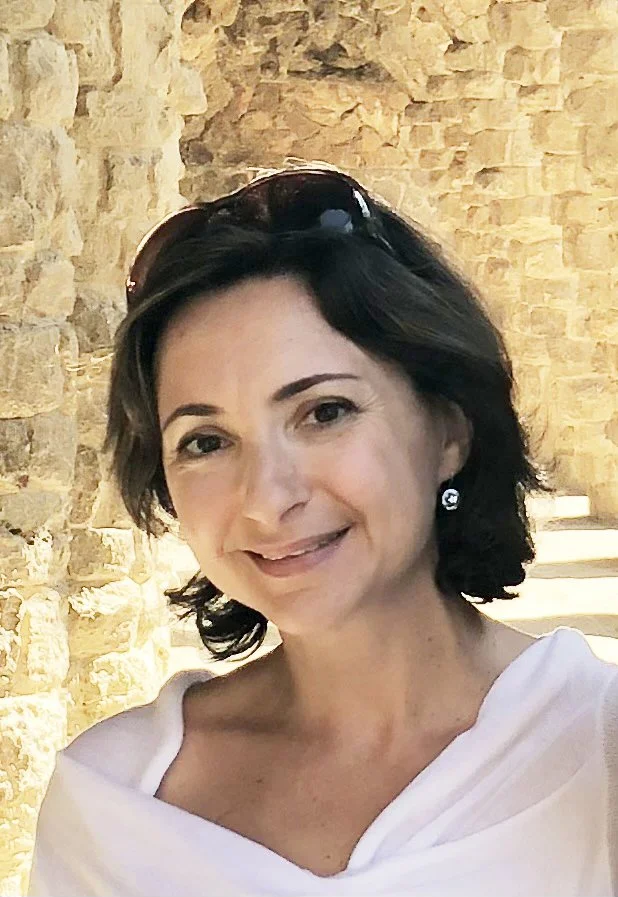One of the world’s top economists considers the time-value of money
Olga Bitel, Partner, Global Strategist, William Blair
By Stephane Fitch and Caroline Morris
When Olga Bitel moved to the United States from Ukraine at 13, she had no idea how international she’d eventually become. Bitel, now a partner and global strategist at William Blair, conducts economic research and analysis across all regions and sectors — and she doesn’t just sit behind a desk. She often jumps on a plane to get an in-person understanding when the cold information in front of her isn’t making sense. Once she has a clear picture, Bitel distills macroeconomic and geopolitical developments to build her clients’ investment portfolios and offers insights on her shared blog “A Step Ahead” with Hugo Scott-Gall, another William Blair partner. Since time is money, we sat down with Bitel to get her perspective on both.
As a finance expert, could you explain the time-value of money and what it means to you?
The time-value of money is if the value of $1 today will be worth more or less in the future. Now, that definition in itself is too simple.
In what way?
First of all, it excludes quite explicitly the opportunity costs of investing in something else, which is where I spend most of my time, the nature of economic growth. But secondly, the concept fundamentally relies on trust in the institutions of the country issuing the currency that you want to save in. Most emerging markets and all frontier markets do not have that hard-currency worldview because they don't have strong enough domestic institutions to support their currencies, so real assets are usually worth more than financial assets. So instead of writing a check for a home, you build it brick by brick as soon as you have the money to buy a brick, because you can’t trust your currency.
And so those half-built homes we see in countries with frontier markets are actually smart investments?
Yes, and the first thing I’ve learned this early on is never ever assume that people are stupid. People may lack education or experience, but they are still optimizing the conditions that they’re in to improve the conditions that they’re in.
So how do you personally see the value of time?
Time is only valuable because it is a resource. And ultimately, economic growth is about making something that is scarce more abundant, and time is very very finite. So if you have the time to sit and think, that’s a luxury. I would argue time is the ultimate luxury. But time is also unknown. When you’re born you don’t know how much time you will have, which dovetails to my personal axiom which is every single day, don’t leave anything on the table. You don't know how much time you’re going to have and whether you’re going to have another opportunity to remedy what you left behind.
Could you expand on that axiom?
Whatever you approach, have no regrets, put in everything you’ve got. Whatever your energy and your mental and intellectual capacity allow you to achieve, achieve that. And whatever happens will be the outcome — that you cannot control. But you can control those inputs. I think one of the worst feelings that I’ve experienced is regret. Knowing that you could have done more but you didn’t.
Do you think you achieve that? Not leaving anything on the table at the end of the day?
It’s usually the case that my to-do list at the end of the day is longer than when it started in the morning! And tomorrow’s list will be even longer. But that’s part of life and that’s OK.
You’ve already lived a vivid life full of twists and turns. How do you think about time as you age? Do you think the best is yet to come?
I sincerely hope that the best is yet to come! But I think there are two relevant criteria for a person as they go through life — physical health and mental and emotional relevance. They go hand in hand. As their physical agility and energy levels decline to the point where their mental capacity cannot keep up. So you lose the mental intellectual relevance and presence.
If those are your criteria, how do you maintain them?
Maintaining physical vitality and intellectual relevance guides how I spend my time. You maintain physical vitality by getting enough sleep — though I’m not going to lie to you, there have been times in my life when I haven’t been able to get 8 hours — but generally, I prioritize it. And of course maintaining relevance to my family, to my daughter, to my work, mostly by compartmentalizing.
So you’re not a believer in multitasking?
I don’t believe in multitasking because it has never worked for me. Strict compartmentalization of time in my space was very important. So when I work on something, I dedicate my full attention and energy to the task at hand. But conversely, when I go home, I by and large focus on the challenges at home. The idea of being fully present wherever I am in whatever I’m doing is the guiding principle of how I divide my time.
How do you put time into your personal relationships?
I am very, very lucky in that I have a fabulous family that I genuinely love. We genuinely enjoy spending time with each other. But being relevant to someone is a day-to-day process. You can’t just fly in and decide, “Oh, I’m going to give this great speech or I’m going to give you this one book and that will make all the difference in the world.” The relationship I have with my daughter was built painstakingly and meticulously every single day since the moment she was born. That’s the kind of vigor that you invest. And that’s the kind of energy I have for what is the most important relationship in my life.
Is there any time-related advice you give to your daughter as she grows up?
I tell my daughter, “Don’t look behind you unless that is where you intend to walk. We always look forward.”
Sometimes it’s hard to stay present because time seems to drag, at work or in traffic. Does time ever slow down for you?
Time slows down for me when I’m forced to do something that I really don’t want to do. I consider myself to be very, very lucky because I think I’m one of the few people who actually love their job. But when I lived in northern Indiana, I worked at a gas station, and it was one of the worst, slowest job experiences that I could have ever imagined! That year and a half was arguably the longest year and a half of my life.
Is there anything you consider a waste of time?
In earlier days, it was certainly domestic chores! But I have been fortunate in that I’ve been able to outsource that task. But when we talk about obvious waste of time, it’s intensely personal. It could be a waste of time for me, but it is an escape for someone else.
Do you have any final wisdom to share on time?
There’s no time like the present.
As a journalist, Stephane Fitch spent two decades battling clocks ticking down to tight deadlines. As a writer, Caroline Morris grapples with how we communicate today and in conversation with the past. Read more about them or this series of interviews about time.


